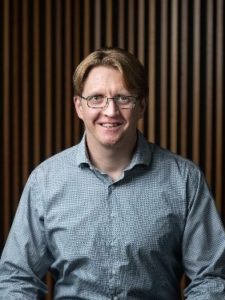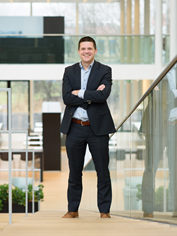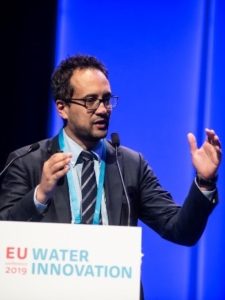Introduction
Since the introduction of drinking water production and wastewater treatment in the beginning of the 20th century, the two main goals were to protect human health and to protect the receiving aquatic environment. To achieve this, water and wastewater treatment processes removed pollutants. With the increasing global awareness that we need to transfer toward a sustainable society, a third main goal needs to be added: to recover resources during water treatment. Many constituents of ‘used water’ can be recovered such as potable water, heat, nutrients, metals, and carbon. Therefore, ambitious targets have been set to re-shape wastewater management practices. We believe that the water sector has to play an important role in the emerging circular economy of the 21th century.
Within the IWA, resource recovery is recognized as an important cross-cutting theme that is highly relevant (either directly or indirectly) for several of IWA’s specialist groups. These groups work on specific topics and/or in well-defined areas by sharing in-depth knowledge among group members. As resource recovery touches upon many specialties, there is a need for a ‘connecting mechanism’ linking relevant activities of the specialist group within the context of resource recovery.
To that end, the IWA has set-up a Cluster for Resource Recovery from Water with the goal to accelerate the use of resource recovery from water and wastewater around the world. One of the key mechanisms for the Cluster for Resource Recovery from Water to contribute to this goal is by improving the IWA internal communication and collaboration amongst relevant specialist groups.
Objectives & Priorities
On a strategic level, the objectives of the Cluster for Resource Recovery from Water are:
- To promote resource recovery from water and wastewater by bringing together R&D, the water industry, governmental bodies and regulators, and end-users of recovered resources;
- To celebrate success of economically and environmentally attractive approaches to resource recovery through the bi-annual Award for Best Practices in Resource Recovery from Water in collaboration with KWR;
- To network on innovations in resource recovery from water through organizing or contributing to international conferences, workshops, and publications;
- To promote links with complementary organizations (in particular those organisations operating within specific industrial segments outside of the water industry);
- To consolidate and enhance worldwide networking among regional, national and multi-national associations and expert groups dealing with resource recovery from water.
Important priorities of the Cluster for 2020-2021 are to initiate the organization of the fourth IWA Conference on Resource Recovery from Water (to be held in 2021 in Istanbul, Turkey) and to continue to establish our presence at major meetings such as the World Water Conference in Copenhagen and IWA conferences relevant for resource recovery. The Cluster aims to launch a graduate entry level textbook on Resource Recovery in 2020 and start a series of webinars in the second half of 2020.
Management Committee
The management committee of the cluster consists of: Dr. Ana Soares (Cranfield University, UK); Prof. David Stuckey (Imperial College London, UK); Dr. Ger Bergkamp (Arcowa, Switzerland); Mr Ludwig Hermann (President of the European Sustainable Phosphate Platform, Austria); Prof. Korneel Rabaey (Ghent University, Belgium); Dr. Miriam Otoo (Ghana); Dr. Goksen Capar (Ankara University, Turkey); Dr. Celine van Eeckhaute (University of Laval, Canada); Prof. Lars Angenent (Tuebingen University, Germany); and A/Prof. Jeremy Guest (Illinois University, USA).
The management committee is led by:
Get Involved
If you are interested in contributing to the cluster or wish to have more information about the specific themes and key resources prioritized by the cluster please visit the cluster’s page and join us on IWA Connect. Furthermore, please feel free to contact the Cluster co-chairs and secretary or IWA Engagement Officer for Specialist Groups and Communities, Billy Thurston (billy.thurston@iwahq.org).
Join us on IWA Connect
–
–
–
–
–
–
–
–
–
Why join?
“This group has allowed me to create collaboration opportunities between my research group and industry.” – J. Smith
“My position on the Steering Committee allows me to build leadership skills and communicate directly with leading experts in modelling.” – A. Brown
“The Resource Recovery Cluster highly encourages young researchers to share theses summaries in order for us to get feedback and further ideas from the community.” – J. Doe
J. Smith
"This group has allowed me to create collaboration opportunities between my research group and industry."
A. Brown
"My position on the Steering Committee allows me to build leadership skills and communicate directly with leading experts in modelling."
J. Doe
"The MIA group highly encourages young researchers to share theses summaries in order for us to get feedback and further ideas from the community."
S. James
"Members genuinely care about the topic and regularly participate in community activities. It is all quite exciting!"
L. Richards
"Organising the annual conference is quite rewarding because you build key managerial skills and get to work with a great team of water professionals."




